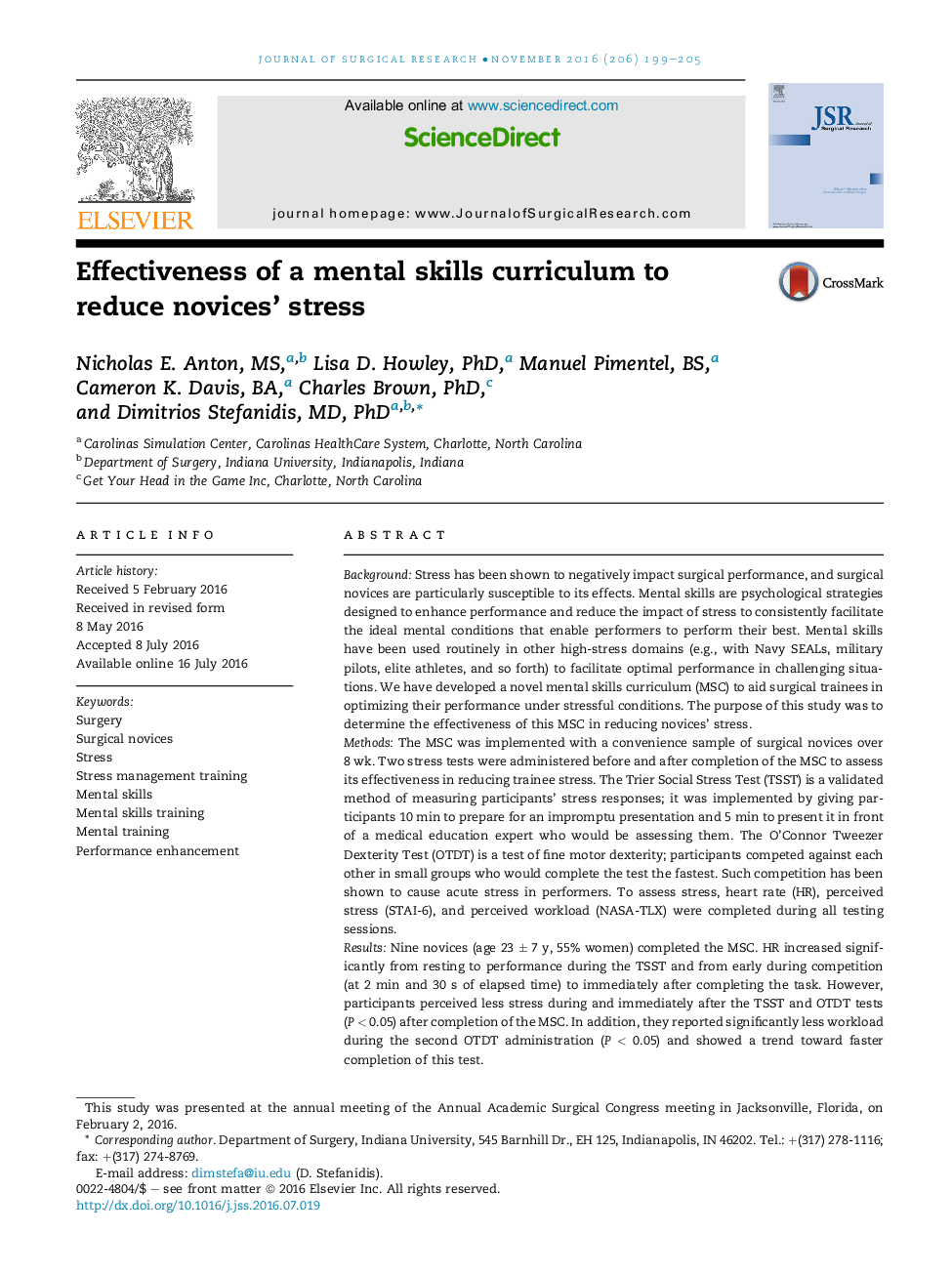| Article ID | Journal | Published Year | Pages | File Type |
|---|---|---|---|---|
| 4299096 | Journal of Surgical Research | 2016 | 7 Pages |
BackgroundStress has been shown to negatively impact surgical performance, and surgical novices are particularly susceptible to its effects. Mental skills are psychological strategies designed to enhance performance and reduce the impact of stress to consistently facilitate the ideal mental conditions that enable performers to perform their best. Mental skills have been used routinely in other high-stress domains (e.g., with Navy SEALs, military pilots, elite athletes, and so forth) to facilitate optimal performance in challenging situations. We have developed a novel mental skills curriculum (MSC) to aid surgical trainees in optimizing their performance under stressful conditions. The purpose of this study was to determine the effectiveness of this MSC in reducing novices' stress.MethodsThe MSC was implemented with a convenience sample of surgical novices over 8 wk. Two stress tests were administered before and after completion of the MSC to assess its effectiveness in reducing trainee stress. The Trier Social Stress Test (TSST) is a validated method of measuring participants' stress responses; it was implemented by giving participants 10 min to prepare for an impromptu presentation and 5 min to present it in front of a medical education expert who would be assessing them. The O'Connor Tweezer Dexterity Test (OTDT) is a test of fine motor dexterity; participants competed against each other in small groups who would complete the test the fastest. Such competition has been shown to cause acute stress in performers. To assess stress, heart rate (HR), perceived stress (STAI-6), and perceived workload (NASA-TLX) were completed during all testing sessions.ResultsNine novices (age 23 ± 7 y, 55% women) completed the MSC. HR increased significantly from resting to performance during the TSST and from early during competition (at 2 min and 30 s of elapsed time) to immediately after completing the task. However, participants perceived less stress during and immediately after the TSST and OTDT tests (P < 0.05) after completion of the MSC. In addition, they reported significantly less workload during the second OTDT administration (P < 0.05) and showed a trend toward faster completion of this test.ConclusionsThe novel MSC was effective at reducing surgical novices' perceived stress and workload during two comprehensive stress tests. Although not statistically significant, participant's enhanced performance during the OTDT is encouraging. This curriculum may be valuable to help inexperienced learners reduce stress in a variety of situations related to learning and performing surgical skills. Additional research using a larger sample size is currently underway to validate the effectiveness of this curriculum.
